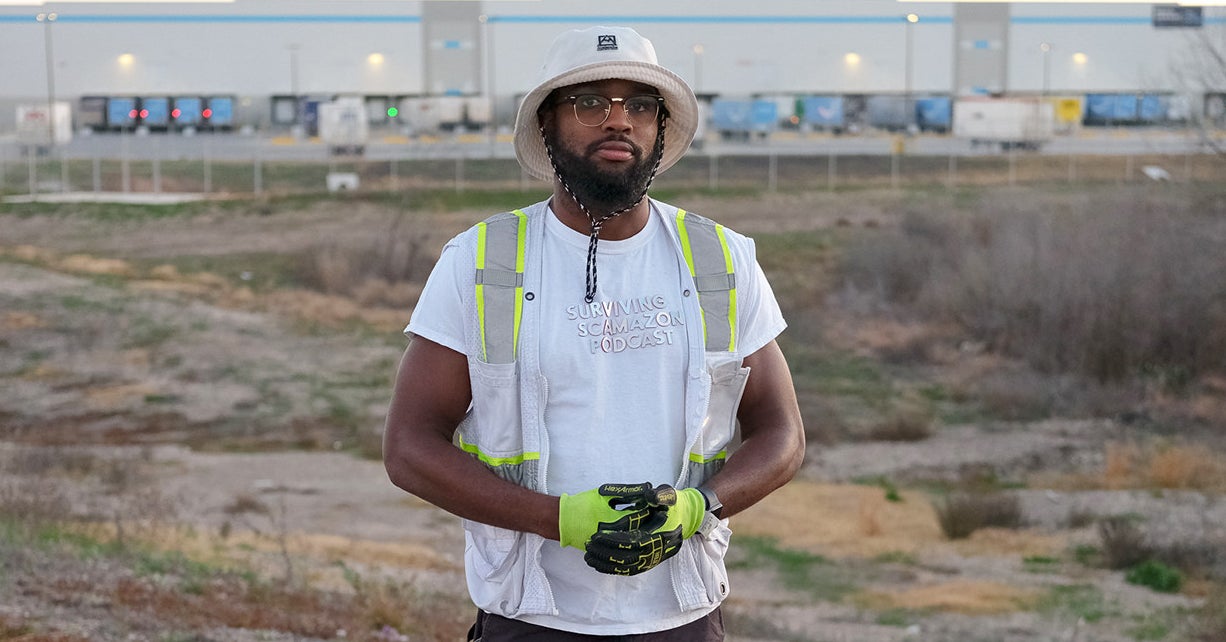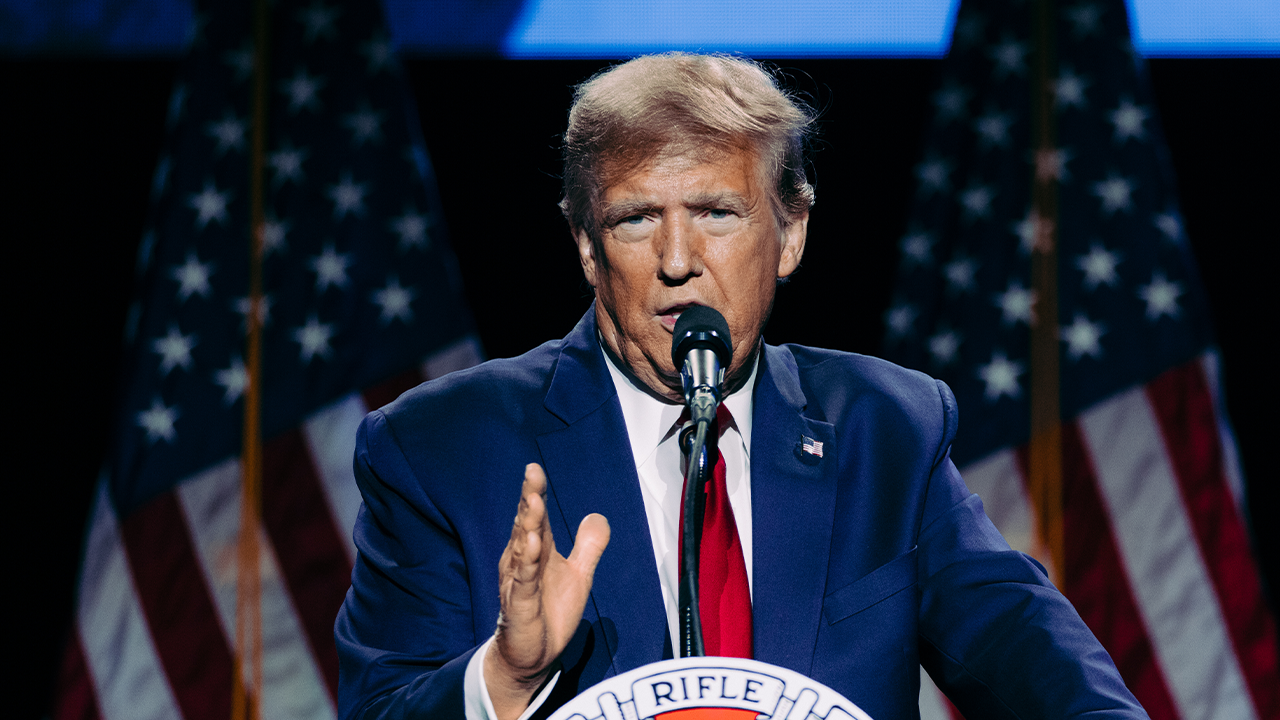In May 2022, Daniel Olayiwola, a 29-year-old picker at an Amazon warehouse in San Antonio, spoke at the company’s shareholder meeting. As an employee, he held a small number of vested stock options that he was able to buy, making him an official shareholder, but a warehouse worker had never introduced a proposal at the annual gathering before, which is typically dominated by the major investors focused on Amazon’s plans to raise profits and dividends.
Near the end of the virtual meeting, Amazon’s moderator played the two-minute recording Olayiwola had sent in advance. In the statement, Olayiwola said he was proposing a resolution to end the company’s “injury crisis” by getting rid of the productivity quotas and surveillance mechanisms that push workers to prioritize speed over safety out of fear of losing their jobs.
“I’ve personally felt the physical toll of working for Amazon,” he said in the recording. “I’ve seen my coworkers work themselves to exhaustion.”
The resolution he submitted included citations of news investigations, research studies, and a government inspection report collectively showing that injury rates at Amazon warehouses were higher than at non-Amazon warehouses thanks to conditions that sometimes violated labor laws.
In the overview it sent to shareholders before the meeting, Amazon argued against calls for policy change by noting that its “worker incident rate” had declined since 2019. “Safety is integral to everything we do at Amazon, as demonstrated by our relentless focus on health and safety training, engagement with employees, and refinement of our processes to improve working conditions,” the company stated. “Our commitment to supporting our employees’ well-being and success is demonstrated through our competitive compensation and employee benefits.”
In a statement responding to questions for this story, Amazon spokesperson Sam Stephenson defended the company’s productivity expectations, which he said are “based on time and tenure, peer performance, and adherence to safe work practices,” and its use of surveillance, which he said is “common practice at nearly every major retailer in the world” and helps “ensure employee safety, inventory quality, or protect against theft.”
When Olayiwola’s recording ended, a heavy silence fell over the line. Then the moderator noted that Amazon recommended that shareholders vote against the resolution. And most did, sinking the proposal.
Olayiwola wasn’t sure if he had just cost himself his job.
“I was super scared about speaking out for the longest, but I was thinking, like, Dude, they’ve already fired everyone you know. Just consider yourself fired,” he said. “I kept on thinking, They could fire you anytime, and if they do, nothing you say will matter. Say what you say right now while you’re in here, so they can’t say I’m just speaking out because I got fired.”
Amazon spokesperson Stephenson said that Olayiwola’s job wasn’t at risk because “retaliation of any kind isn’t tolerated.”
But Olayiwola wasn’t sure what to expect when he showed up at the warehouse the next week. On the way to his work station, he said, a manager stopped him. To his surprise, the manager told Olayiwola he respected him for speaking up. But, he added, a job in an Amazon warehouse was still better than most alternatives. “You could have it a lot worse,” Olayiwola recalled the manager saying.
He wasn’t fired. But none of his proposals were put into place.
So last summer, he started a podcast with the provocative title Surviving Scamazon, posting the short episodes on YouTube, so far seven in all, two- to 10-minute monologues each focusing on different slices of company policy and how they affect workers. The videos haven’t gotten more than a few hundred views and are far from the polished productions of full-time creators, but they stand as a noteworthy case of a non-unionized, low-wage worker creating an independent channel to publicly and non-anonymously call out the company actively employing them. Olayiwola hopes his initiative spurs others to contribute their voices, perhaps one day forming a vast digital chorus clamoring for corporate accountability.
“The sooner we open a dialogue, the sooner we can start to figure out what’s going on and see what we can try to change or fix,” he said in the first episode, which went up in July.
The podcast is only part of his effort to amplify his message. Over the last year, he has done interviews with at least four news outlets, published an op-ed in Fortune, and volunteered as a leader for United for Respect, an advocacy group that campaigns on behalf of retail workers.
“Everybody was so scared about speaking out,” he said. “I felt like I had to do something to inspire others to tell their experiences working at Amazon.”

